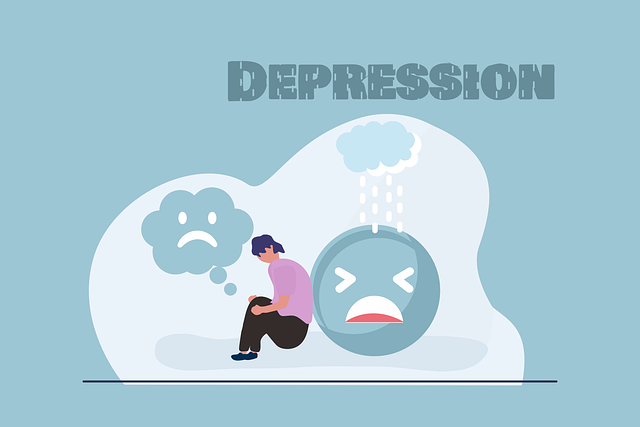Castle Rock Cognitive Behavioral Therapy (CRCBT) prioritizes risk management to enhance client outcomes. By assessing individual challenges like past trauma and stressors, therapists identify risks such as self-harm and suicidal ideation early. Personalized interventions focus on building resilience, while public awareness campaigns normalize mental health conversations. Proactive risk mitigation and crisis planning, along with fostering professionals' self-care, ensure CRCBT provides accessible, transformative journeys towards improved mental well-being.
“In the realm of mental health practice, risk management is an indispensable tool for professionals aiming to provide safe, effective care. This article explores comprehensive risk management planning tailored to Castle Rock Cognitive Behavioral Therapy (CR CBT). We delve into identifying and assessing unique risks associated with CR CBT practices, offering strategic insights for mitigation and crisis preparedness. By understanding these key aspects, mental health professionals can enhance patient safety and foster a robust therapeutic environment.”
- Understanding Risk Management in Mental Health Practice
- Identifying and Assessing Risks Specific to Castle Rock Cognitive Behavioral Therapy
- Strategies for Effective Risk Mitigation and Crisis Planning
Understanding Risk Management in Mental Health Practice

In the realm of mental health professional services, risk management planning is a critical component ensuring client safety and fostering therapeutic environments. This involves identifying, assessing, and mitigating potential risks that may arise during Castle Rock Cognitive Behavioral Therapy (CBT) sessions or related support services. Every client’s journey towards mental wellness is unique, presenting diverse challenges that require tailored strategies. Effective risk management in this context goes beyond mere compliance; it actively contributes to creating a nurturing and secure atmosphere for self-esteem improvement.
By integrating practices such as Mental Wellness Journaling Exercise Guidance, professionals can empower clients to develop coping mechanisms and enhance their awareness of potential triggers. Furthermore, public awareness campaigns development plays a pivotal role in normalizing mental health discussions, reducing stigma, and encouraging individuals to seek necessary support. Through proactive risk management, mental health practitioners can ensure that CBT therapy remains accessible and beneficial for all, fostering transformative journeys towards improved mental health and well-being.
Identifying and Assessing Risks Specific to Castle Rock Cognitive Behavioral Therapy

Identifying and assessing risks specific to Castle Rock Cognitive Behavioral Therapy (CRCBT) is a critical step in risk management planning. Mental health professionals working with CRCBT must be attuned to the unique challenges faced by their clients, such as potential triggers related to past traumas or current stressors. By conducting thorough intakes and ongoing assessments, therapists can uncover specific risks like self-harm ideation, suicidal thoughts, or relapse into disturbing behaviors. These risks demand tailored interventions within the framework of CRCBT, focusing on building resilience, developing inner strength, and boosting confidence to effectively navigate these challenges.
Assessing these risks involves a comprehensive review of the client’s history, current symptoms, and prior treatment experiences. Therapists should be skilled in using validated risk assessment tools specific to cognitive behavioral therapy modalities. This process allows for early identification of high-risk individuals who may require more intensive monitoring or alternative therapeutic approaches. Through proactive risk management, mental health professionals can ensure the safety and well-being of their clients while optimizing the benefits of Castle Rock Cognitive Behavioral Therapy.
Strategies for Effective Risk Mitigation and Crisis Planning

Mental health professionals must be equipped with robust strategies for effective risk mitigation and crisis planning to ensure they can provide quality care while safeguarding their well-being. A key component involves developing comprehensive risk assessment tools tailored to individual clients, factoring in unique challenges like past traumas, cultural backgrounds, and personal resilience. By integrating these assessments into regular therapy sessions at Castle Rock Cognitive Behavioral Therapy, therapists can proactively identify emerging risks and implement timely interventions.
Additionally, fostering self-care routines for mental health professionals is paramount. This includes encouraging healthcare providers to prioritize self-esteem improvement through ongoing training and personal development opportunities. Equally important is promoting the adoption of a structured self-care routine that balances work with rest, exercise, and social connections. Much like Castle Rock Cognitive Behavioral Therapy focuses on empowering clients to lead healthier lives, professionals must similarly invest in their own mental health through crisis planning and self-care practices, ultimately enhancing their ability to support others effectively.
Effective risk management planning is essential for mental health professionals, especially those practicing Castle Rock Cognitive Behavioral Therapy. By understanding the unique risks associated with this therapy, such as client resistance or potential triggers, therapists can proactively identify and mitigate these challenges. Implementing strategies for crisis planning, including clear communication, well-defined safety protocols, and access to support networks, ensures a safer environment for both clients and practitioners. Through diligent risk assessment and proactive mitigation techniques, mental health professionals can enhance their practices and deliver more effective Castle Rock Cognitive Behavioral Therapy while maintaining a robust risk management framework.











